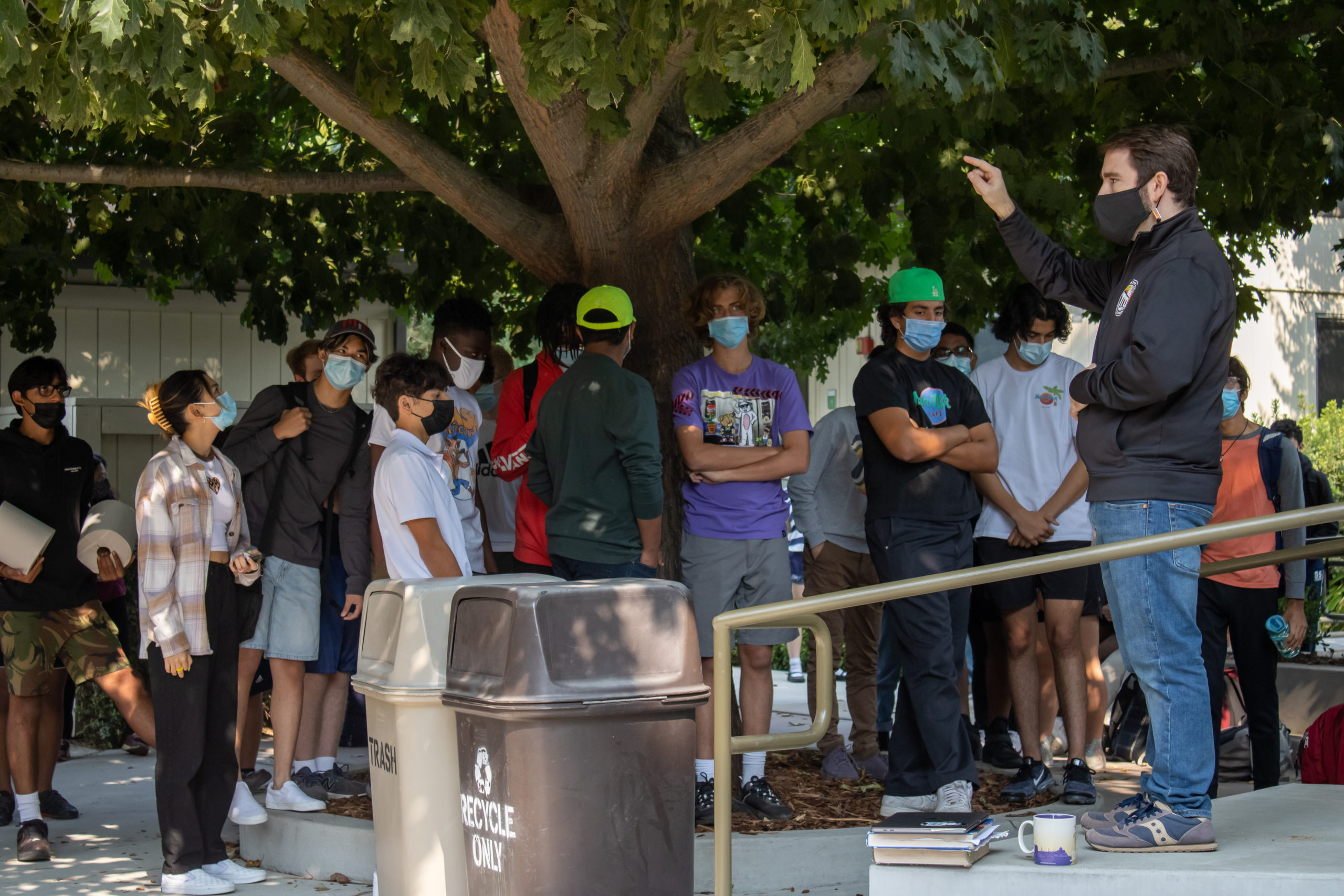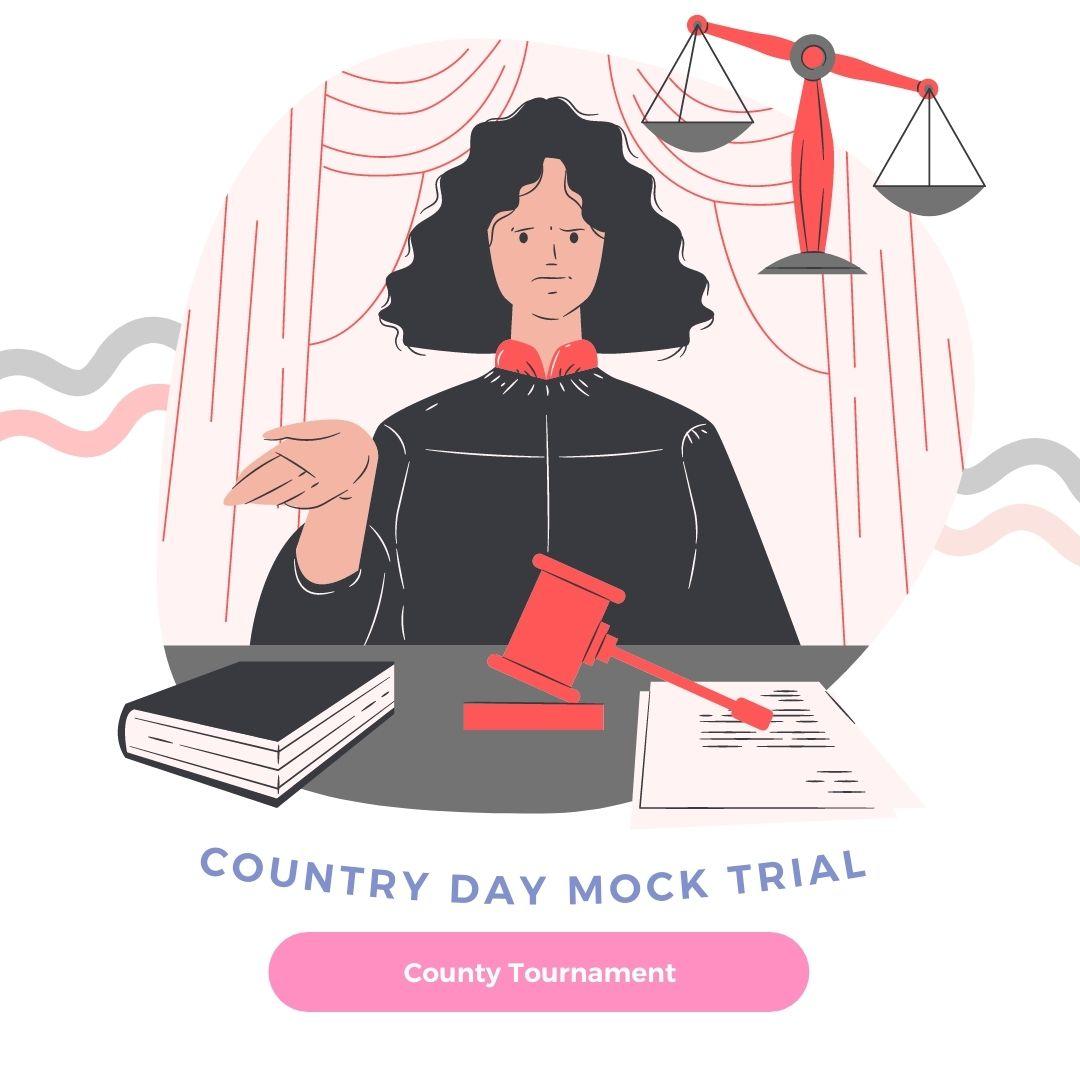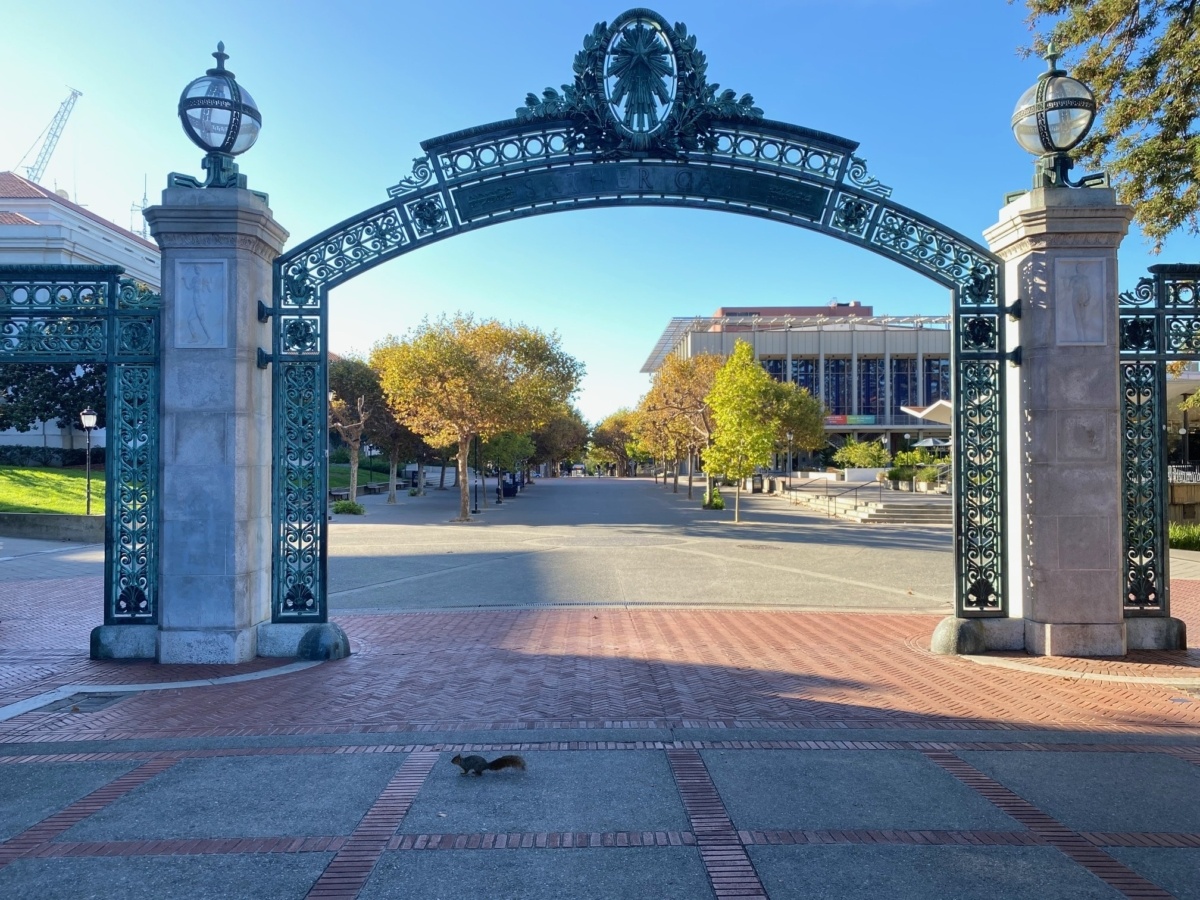Zoom-bomber found; apologizes for previous attacks on Country Day morning, class meetings
Students logged onto the March 5 high school Zoom morning meeting expecting club announcements and a few words from teachers. They got the f-bomb.
An unwelcome visitor, assuming the name of a student, dropped in halfway through the meeting, interrupting senior Kenyatta Dumisani’s announcement with several vulgarities.
Dean of Student Life Patricia Jacobsen’s initial reaction was of disbelief.
“I was shocked,” Jacobsen said. “When he kept saying the f-word after (Head of High School Brooke) Wells asked him to stop, I was like, ‘That’s not one of our students since they would never do that, right?’”
Although new to the majority of the high school, this “Zoom-bomber” had intruded on a few classes weeks earlier.
The Friday meeting Zoom-bomber, as the intruder is referred to colloquially, has been identified and has issued an apology. Previously, he had dropped in on English, history, geometry and physical education classes, using student names to slip past Zoom waiting rooms, Jacobsen said.
The Apology
First, I would like to apologize for the destruction and the things I have done to hurt others.
I would like to apologize to the students for wasting their time to learn. It was not right for me to invade the time they had and to make it an unsafe learning environment. I would also like to apologize to the school’s staff for wasting their time and resources because of my actions.
I am deeply sickened to my stomach because of what I have done. I am sorry for my wrongful doing and the hurt I have caused for others. I genuinely regret the things I have done and the things I have said that have pained others. I have learned from my mistakes, and rest assured I will never do this again in my life. If there is anything I can do to make this right, please let me know. Once again, I sincerely apologize for my offensive doings. I appreciate you giving me the chance to make this right and I would like to make amends to the individuals I have hurt.
Following the March 5 incident, Wells headed an investigation with Assistant to the Head of High School Valerie Velo and Jacobsen to find out how the Zoom-bombings happened and who was behind them. Within about four days, the Zoom-bomber had been tracked down, Wells said.
Velo and Jacobsen used student schedules to narrow it down to two students who could be connected to the Zoom-bomber. From there, they identified an email address not synonymous with those used by Country Day students.
Velo used the email address to track the person down on social media platforms, eventually finding him on Yelp.
From there, Director of Technology Shelley Hinson found the IP addresses used by the person who interrupted the meetings. Velo confirmed one IP address that was connected to the address found on the Yelp profile she had discovered earlier.
Next, the school reached out to the suspected Zoom-bomber.
“Within a day, we had a confession and apology,” Velo said.
The apology was read out loud to the high school by Wells in the next morning meeting. Wells kept the identity of the Zoom-bomber anonymous.
The Zoom-bomber got the link through an email of a Country Day student.
“What happened is a student inadvertently used a distant relative’s cellphone to check their email and forgot to log out,” Wells said.
This gave the Zoom-bomber access to school Zoom meetings. Wells emphasized this was an accident on the part of the student rather than Zoom links being intentionally leaked.
The Zoom-bombings left a noticeable impression on members of the community.
“It really kind of got to me,” said ninth and 12th grade English teacher Jason Hinojosa, whose freshman class was Zoom-bombed in January.
“It might sound like an overstatement, but it’s a sacred space in the classroom, and you don’t realize it until it gets violated,” Hinojosa said. “I felt the same way about the morning meeting. It just felt wrong.”
Hinojosa responded to the incident in his class by changing the Zoom link to his classes. He also updated a setting so that only people with Country Day email addresses can join.
Wells did the same with the high school morning meeting.
While Jacobsen didn’t have any of her classes affected by the Zoom-bomber, she was still unsettled with the series of events.
“It’s an invasion of privacy,” Jacobsen said. “And a federal offense.”
The Federal Bureau of Investigation advises citizens who were “a victim of a teleconference hijacking, or any cyber-crime for that matter” to report to the FBI’s Internet Crime Complaint Center. Zoom-bombing is considered video-teleconference hijacking.
“Over 500,000 people have died; people are getting sick; people are losing out on so much stuff. And now this is going to add to everyone’s problems,” said Jacobsen about the Zoom-booming. “As if we don’t have enough to worry about trying to keep the school safe.”
Hinojosa is optimistic about Zoom-bombing not happening in the future; however, only tentatively.
“People who abuse technology are usually a couple steps ahead of the people trying to stop them. So, I think a creative or savvy bomber could find a way to do it. I just hope they don’t,” Hinojosa said.
— By Ethan Monasa and Arijit Trivedi





Excellent article, very well written. What I was left wondering, however, is why did this intruder even think of doing such a thing, let along actually doing it? As offensive as it was and is, it’s part of what our world is today, and how we all have to stand up to such behavior and make sure that the perpetrators understand why what they did was wrong and make sure they are not able to do it again.